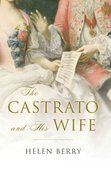Olympic swimmers meet Latin America’s vast gray area of private security
During the closing week of the Rio games, the biggest story was not about the pool, the mat, or the track but rather about the after-game party . . . and the after-party mess. As of Friday morning, the next-to-last day of the games, the home page of the New York Times was carrying headlines for five separate articles concerning the event. Clearly, the events that unfolded when the swimmers arrived at the gas station as well as the interviews given by American medalist Ryan Lochte…









